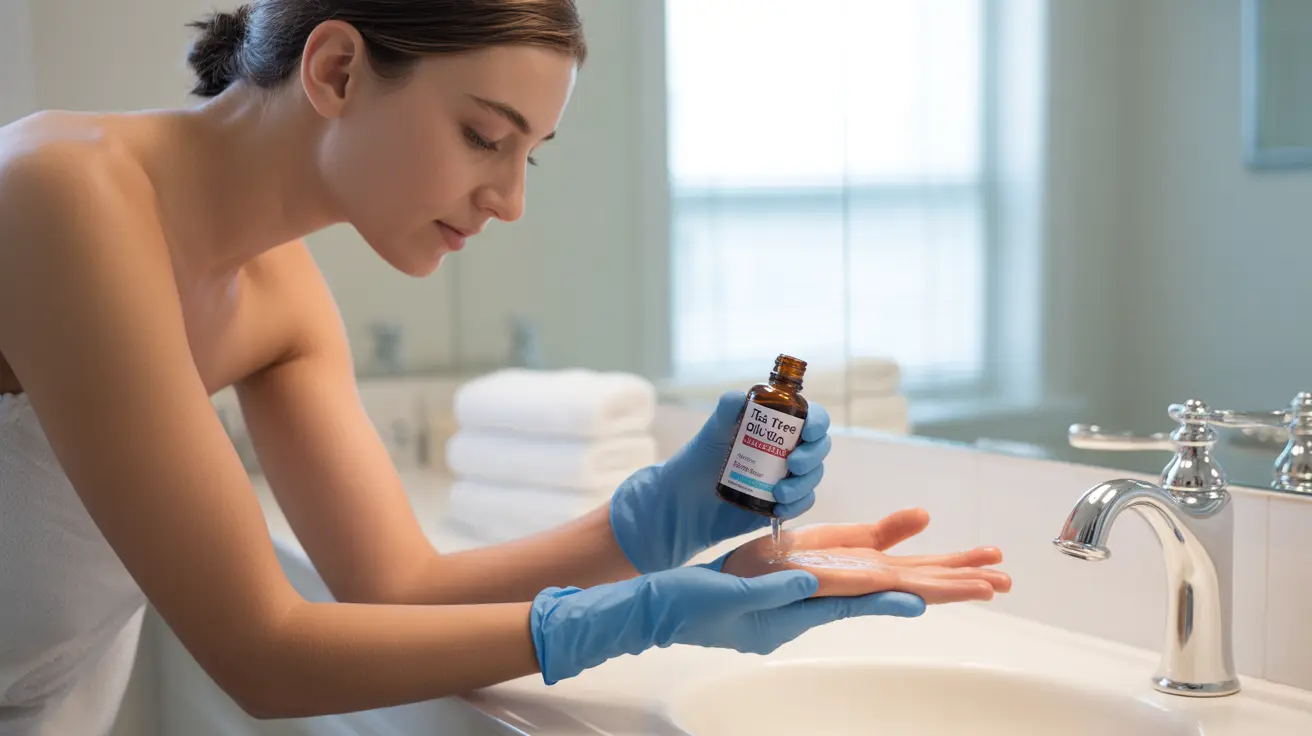Living with MRSA (Methicillin-resistant Staphylococcus aureus) can be challenging, especially when seeking alternatives to antibiotic treatment. While antibiotics are often necessary for severe infections, there are several evidence-based approaches to help manage and prevent MRSA naturally. Understanding these options is crucial for those looking to complement medical treatment or prevent recurrence.
This comprehensive guide explores proven methods for managing MRSA without antibiotics, including proper hygiene practices, topical treatments, and preventive measures. However, it's important to note that severe MRSA infections always require professional medical attention.
Natural Treatment Approaches for MRSA
Several natural approaches can help manage MRSA colonization and minor infections:
Tea Tree Oil Applications
Tea tree oil has demonstrated natural antimicrobial properties that may help fight MRSA bacteria. When properly diluted with a carrier oil, it can be applied to unbroken skin. Always perform a patch test first and never apply undiluted tea tree oil directly to the skin.
Manuka Honey Treatment
Medical-grade manuka honey has shown promising results in fighting MRSA infections. Its unique properties create an environment where bacteria struggle to survive. Only use medical-grade honey products specifically designed for wound care.
Effective Hygiene Practices
Maintaining proper hygiene is crucial in managing MRSA:
- Wash hands frequently with soap and water for at least 20 seconds
- Keep wounds clean and covered
- Use separate towels and personal care items
- Regularly clean and disinfect frequently touched surfaces
- Avoid sharing personal items like razors or towels
Medicated Cleansing Options
Chlorhexidine Washes
Chlorhexidine gluconate washes can effectively reduce MRSA colonization on the skin. These should be used according to healthcare provider instructions, typically applying the solution daily during showering.
Bleach Bath Protocol
Diluted bleach baths can help reduce MRSA bacteria on the skin. Use ¼ to ½ cup of regular household bleach per full bathtub of water, soaking for 5-10 minutes, no more than twice weekly. Always consult a healthcare provider before starting bleach bath treatment.
Warning Signs for Medical Attention
While natural treatments can be helpful, certain symptoms require immediate medical care:
- Fever or chills
- Rapidly spreading redness or warmth around the infection site
- Increasing pain or swelling
- Pus or drainage from the wound
- Multiple lesions or boils
- Deep or large wounds
Preventive Lifestyle Measures
Implementing these lifestyle changes can help prevent MRSA recurrence:
- Maintain a strong immune system through proper nutrition
- Exercise regularly to boost natural immunity
- Keep skin clean and moisturized to prevent breaks in the skin
- Practice good sleep hygiene
- Manage stress levels effectively
Frequently Asked Questions
- How can I try to reduce MRSA bacteria on my skin at home without using antibiotics?
You can reduce MRSA bacteria through regular chlorhexidine washes, proper hand hygiene, keeping wounds clean and covered, and using medical-grade manuka honey or properly diluted tea tree oil on unbroken skin. Maintaining overall skin health and following strict hygiene protocols is essential.
- What hygiene steps can help prevent MRSA reinfection or spread in children?
Key hygiene steps include regular handwashing, keeping wounds covered, using separate towels and personal items, regular cleaning of toys and surfaces, and teaching children proper hygiene habits. Ensure children don't share personal items and maintain clean, trimmed nails.
- Are bleach baths or chlorhexidine washes effective for managing MRSA without antibiotics?
Yes, both methods can be effective when used properly. Chlorhexidine washes provide daily protection, while properly diluted bleach baths (used 1-2 times weekly) can help reduce bacterial colonization. Always follow healthcare provider instructions for proper dilution and frequency.
- When is it necessary to see a doctor instead of relying on home treatments for MRSA?
Seek immediate medical attention if you experience fever, rapidly spreading redness, increasing pain or swelling, pus drainage, multiple lesions, or deep wounds. These symptoms may indicate a severe infection requiring professional medical intervention.
- Can MRSA skin infections ever be cured without antibiotic medication?
Minor MRSA colonization or very early infections might be managed without antibiotics through proper hygiene and natural treatments. However, active MRSA infections typically require appropriate antibiotic treatment prescribed by a healthcare provider to ensure complete resolution and prevent complications.




